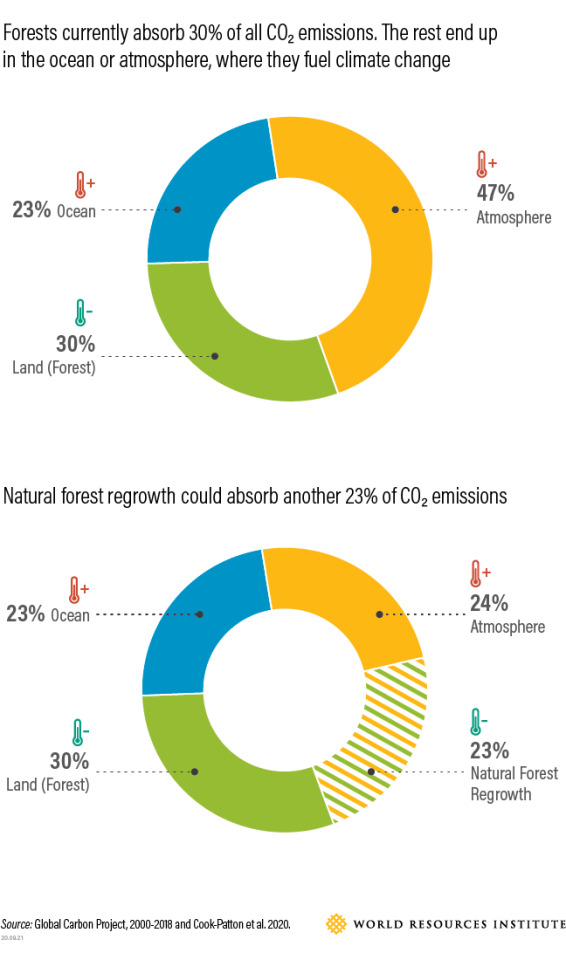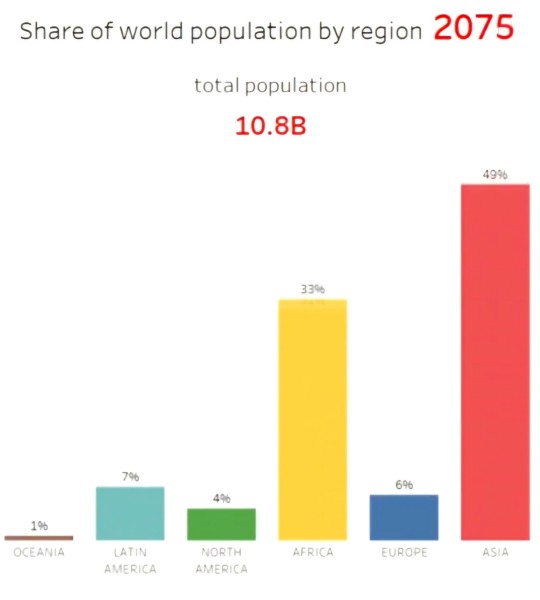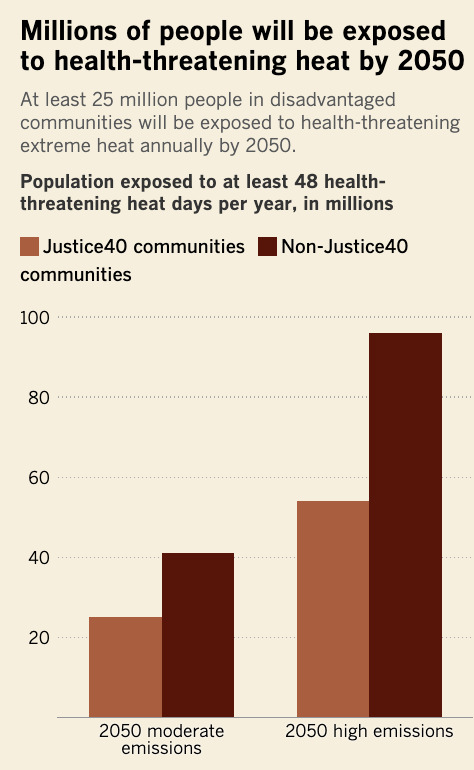#Crisis: Year 2050
Text
Solar Crisis (1990)
Solar Crisis has become vastly more interesting over the years. Tim Matheson, Charlton Heston, Jack Palance and Peter Boyle star in this sci-fi adventure with ... umm... effects and music.

View On WordPress
#Alan Smithee#Annabel Schofield#Arthur Marks#Charlton Heston#Crisis: Year 2050#Dorian Harewood#Jack Palance#Mauriace Jarre#Paul Koslo#Paul Williams#Peter Boyle#Richard C. Sarafian#Solar Crisis#Takeshi Kawata#Tim Matheson
0 notes
Text
yesterday, november 18 2023 was the first day in recorded history where the global 2m surface temperature exceeded 2 degrees Celsius above the 1850-1900 baseline.
the 1850-1900 period serves as a baseline for the intergovernmental panel on climate change (ipcc) primarily because it represents the pre-industrial era, just before the widespread industrialization that began in the late 19th century.
this era is important for understanding the effects of climate change because it provides a relatively stable reference point for the earth's climate system before human activities - particularly the burning of fossil fuels - began to significantly alter the composition of earth's atmosphere. therefore, this period offers some of the earliest reliable meteorological data, allowing scientists to establish a baseline climate against which current and future changes can be compared.

the last time it was close to this hot was +1.99°C above the baseline, on Feb. 28, 2016 during hottest part of El Nino
yesterday, the value was +2.01°C before the hottest part of El Nino.
the 2°C threshold is widely regarded as a critical limit beyond which climate change impacts become increasingly severe and potentially irreversible. this includes increasing extreme weather events, over time a 40~ foot sea-level rise, and massive loss of biodiversity. some of which we are seeing take place before our eyes right now, every single day. all of these headlines are from this year alone:
Ocean scientists concerned over uptick of whale deaths on Northeast coasts
Penguin Chicks Are Dying Off as Antarctic Sea Ice Disappears
More than 10 billion snow crabs starved to death off the coast of Alaska. But why?
Texas oysters in dire straits
Tens of Thousands of Dead Fish Wash Ashore on Gulf Coast in Texas
Drone footage shows millions of dead fish blanket river
Mass death of Amazonian dolphins prompts fears for vulnerable species
‘Crisis period': Dead or dying marine mammals increasingly washing up on SoCal beaches
bear in mind that this is because we're already seeing a near-average of 1.5°c warming this year. this was not expected until the year 2050. like.. it's happening now.
the 1.5°c warming threshold, which is often discussed alongside the 2°c threshold, holds its own significance in the context of climate change and the efforts to mitigate its impacts. this threshold was brought into prominence by the paris agreement, which aimed to limit global warming to well below 2°c, preferably to 1.5°c, compared to pre-industrial levels.
we have effectively blown past this barricade and are barreling toward another. the capitalist train is leaving the tracks and taking us with it.
583 notes
·
View notes
Text
Explaining PIP, the reforms and how YOU can help!
Recently, Prime Minister Rishi Sunak and Secretary of State for Work and Pensions Mel Stride announced measures to reform PIP (Personal Independence Payment). It's a benefit given to disabled people, whether they are employed or not, to help provide support for the extra costs incurred due to being disabled. PIP can be paid on anything you need, such as a carer, adaptions, your bills or a night out (yes, disabled people are entitled to a social life I'm NOT arguing with anyone about this!) On top of the changes to sick notes, the announced reforms are an assault on disabled people to desperately cling to power!
Below is an explanation of PIP and the reforms so people can answer the open consultations, call for evidence, and sign a petition. We need as many people in the UK as possible to answer both to try to stop these reforms from happening.
What is PIP?
The Tories are saying PIP is a one-size-fits-all benefit, which again is a lie as PIP is designed to look at how your disability affects your daily life and how difficult it makes it for you to participate in society, not whether you have this specific disability so it only affects you in these ways! It doesn't matter whether you're diagnosed or not, either. There are two categories they look at throughout, known as the 'Daily Living Component' and the 'Mobility component' The process involves 50 pages you have to fill out (link to Turn2US for proof https://www.turn2us.org.uk/get-support/information-for-your-situation/claiming-personal-independence-payment-pip/fill-in-the-personal-independence-payment-pip-form#:~:text=You%20usually%20get%20the%20paper,it%20is%2050%20pages%20long.)
With hundreds of letters from Doctors as proof of your condition! And then an assessment in which you will answer all sorts of demeaning questions, give in-depth answers that you don't feel comfortable sharing, and hope the assessor has understood how it affects your life and written it down properly and that you'll get the right amount of money at the end of this assessment or re-assessment.
To get the standard rate in both components, you need 8 points; to get the enhanced rate, you need 12 points.
They'll then give you two, three, five, or ten years (10 years is known as a fixed-term award and a light-touch review) to undergo the terror of the PIP assessment again.
The reforms proposed and why they're terrifying!
The reforms they've suggested so far are
One-off grants for aids and appliances
receipts to then be claimed back at a later date
the changing of eligibility for PIP or the category 'Long Term sickness'
Vouchers instead of cash payments
If you've read those four options and thought they were cruel, infantilising and impossible to make work, then you'd be right.
As a disabled person, bills don't magically disappear. You still have council tax and rent to pay or a carer. Will landlords and councils accept these vouchers? A one-off grant won't work here either. The vouchers also signal that we can't be trusted to pay for our own needs and aren't responsible—which is far from the truth!
Aids and treatments are already covered by the NHS, so this is redundant and will be futile, especially when you consider the long waiting lists for mental health treatment (and just generally) on the NHS—and even if they aren't, we do know that and will use PIP to save up for it, etc. It's easier and more economical to give us cash payments.
To have the receipts to claim back expenses, we need to have the money to spend on said expenses.
Changing the eligibility will (much like these other suggestions) put more disabled people at risk. If you want mental health to improve: Fix the NHS, wages, sort out the cost of living crisis and fund the research/support for Long Covid sufferers.
How you can help! - UK-based people, plz sign everyone else. Please reblog & signal boost!
If you live in the UK, there are currently two consultations open ( the sick note one closes on 8 July 2024, and the PIP one closes on 22 July 2024). Ideally, the responses will be used to decide whether these reforms go ahead.
Here are links to the two reforms for PIP and changes to the sick note process.
Please note that the PIP consultation ( the first link) is 6 pages long and must be completed in one go. It's also filled with typos, repeated questions, and very difficult wording in many places, so be on the lookout for that! People are rightfully complaining about its accessibility, so the link and end date may change. I will update this post if this happens. I also know answering stuff like this is overwhelming, so here is a thread by PeachyInWales on Twitter about how they approached the consultation. If I see any samples by any disability activists or organisations, I will post them here, too!
This second link is the second consultation or call to evidence. Which GPs are being stripped of the ability to sign sicknotes for people on benefits, which is again ridiculous!
And the last link is a petition from SCOPE to stop the government from demonising disabled people further.
Ultimately, we're trying to stop a benefit that is difficult to get and barely covers costs for many applicants from getting worse.
If I've missed anything then let me know! I'm sorry the post was so long, but it's a lot to go through! Again, UK-based people, please share your thoughts if you can and sign the petition! If you are not currently living in the UK, please share these links or the post so other UK-based users can see this and try to help.
Thank you!
#uk politics#anti rishi sunak#anti mel stride#anti dwp#PIP#personal independence payment#sick notes#petitions#UK benefit reforms#disability rights#disability activism#disability#SCOPE#anti tories
57 notes
·
View notes
Text
"There’s increasing recognition of how nature can help tackle the climate crisis. From protecting standing forests to planting new trees, forests offer significant climate mitigation benefits. Now, new research [from 2020] shows that letting forests regrow on their own could be a secret weapon to fighting climate change.
Experts at WRI, The Nature Conservancy and other institutions mapped potential rates of carbon capture from “natural forest regrowth,” a restoration method distinct from active tree-planting, where trees are allowed to grow back on lands previously cleared for agriculture and other purposes.
The results, published in Nature and available on Global Forest Watch, show that letting forests regrow naturally has the potential to absorb up to 8.9 billion metric tons of carbon dioxide from the atmosphere each year through 2050, while still maintaining native grasslands and current levels of food production.
That’s the equivalent of soaking up 23% global CO2 emissions from the atmosphere every year.
This is on top of the carbon sequestration already provided by existing forests, which currently absorb around 30% of C02 emissions each year."

-via World Research Institute, September 23, 2020
#forests#climate change#carbon emissions#carbon sequestration#atmosphere#reforestation#research#good news#hope#hope posting
239 notes
·
View notes
Note
Loved your old blog! But i have a question why's there's too many immigrants in Europe rn, isn't having too many immigrants not safe for your country, it makes the country and its culture unstable. Like common you can see it clearly too right ?
True, there has been instances where it has appeared that show immigration in a bad light but it's not the fault of the immigrant people but the policy itself. Most European countries involve policies where immigration is allowed to a percentage, a small percentage each year to absorm them minority in their own culture. Disregarding the fact that these people have their own culture and values, richer and more grounded. So ofcourse there has been resistance

But the 'resistance' is only to a an impulse, made by these countries. First let me explain why immigration is necessary for Europe then i would explain how europe is doing it wrong.
Without immigration, the EU and UK could find their economies crippled by worker shortages within the next thirty years. A shift in attitudes to immigrants, as politically and socially difficult as it might be, will be necessary to head off economic disaster.
Demographic decline, the effect of populations getting older and having fewer kids, will see the economies of Europe and the UK down around 44 million workers by 2050, according to a report from the Center for Global Development (CGDev) based in Washington, D.C.
We've known about the issue of demographic decline for a long time, and many developed countries are now waking up to the fact that a crisis is looming (lesser-developed countries tend to have younger populations and higher fertility rates so aren't yet facing the same problem).
Fortunately, the report argues, the solution to Europe's demographic woes is right next door. With Africa's population expected to double to 1.3 billion by 2050, it would make sense for Europe to allow more people in to fill job shortages, while relieving the worsening jobs crisis for young people in Africa.
That's easier said than done, of course. Europe and Africa have a complicated relationship when it comes to migration, and recent years have seen various deals between individual African countries and regions and European governments to restrict immigration from South to North. The Khartoum Process, for example, saw EU and UK money sent to governments in the Horn of Africa to effectively outsource European border control, which many observers say led to widespread human rights abuses
At the same time, European attitudes to migrants present a mixed picture, with some countries more resistant to newcomers than others. African migration in particular is a thorny issue, with many Europeans expressing concerns that Africans are less able to adapt to European customs and national identities, though recent research suggests this attitude is improving in some countries.
There is, however, another more subtle concern. The case for labor migration in the face of demographic decline may be overwhelming enough even to beat out racial prejudice or anti-immigration sentiment, but such a utilitarian approach risks viewing potential African migrants as resources Europe can use, rather than individual people with their own dreams and ambitions
A step in the right direction would be for European policymakers to stop using immigrants as political scapegoats or leverage, and instead to start acknowledging that Europeans may need Africans just as much as they've always assumed Africans need them, by 2040, Africa will have 1.7 billion people of working age, more than China and India, and by 2030, it will be home to 65 percent of the global population of people under 30. So where's the problem the problem is this ego of these white people, thinking that they are the purest and their culture and future can't have people that don't look like them.

Europe needs to lose this silly pride of this 'purity' and accept facts, these bigots are afraid they gonna lose their privilege when exposed to this
They have benefiting for centuries just by merit but this same privilege has become their downfall

Almost all of good media (music, film, sports) are mostly afro people.
This is what those racists are afraid of

Which is basic evolution, prettier, stronger, smarter, less genetic defects etc.
So how should Europe avoid Africa colonising them forcefully in future?
By adopting African culture now.
There's stigma involved, prejudices by lack of information, which when looked into are just hypocrites and their lies. Europeans need to see as assimilation as the way into right direction, marrying into an African family is hypergamy. And adopting and celebrating culture of the soon to be majority is a good way to avoid these problems happening right now, so the solution is :


28 notes
·
View notes
Text

A moderate-emissions scenario is the most likely, with fossil fuel consumption peaking and then starting to decline. A high-emissions scenario reflects unchanged "business as usual" greenhouse gas emissions. Justice40 communities are those identified by the federal government as marginalized, underserved and overburdened by pollution. ICF Climate Center. Ashley Ahn. LOS ANGELES TIMES
Excerpt from this LA Times story:
The next quarter of a century will bring considerable climate danger to millions of Americans living in disadvantaged communities, who will not only experience increased exposure to life-threatening extreme heat but also greater hardships from reduced energy reliability, a new nationwide report has found.
The report, published Wednesday by the ICF Climate Center, examines global warming projections in Justice40 communities — those identified by the federal government as marginalized, underserved and overburdened by pollution. The Justice40 Initiative was established under President Biden’s strategy to tackle the climate crisis, which aims to funnel 40% of benefits from certain federal climate, energy and housing investments into these communities.
But the report outlines a stark future for residents in these areas, including many in California.
Under a moderate-emissions scenario — one in which current fossil fuel consumption peaks in the coming decades and then starts to decline — at least 25 million people in disadvantaged communities will be exposed to health-threatening extreme heat annually by 2050, the report found.
Under a high-emissions scenario, reflecting unchanged “business as usual” greenhouse gas emissions, that number soars to 53 million people. Extreme heat is defined as at least 48 health-threatening heat days per year.
“We were a bit surprised at those numbers — they’re large and meaningful,” said Mason Fried, one of the report’s authors and the director of climate science at ICF, a global consulting firm. “The potential exposure of extreme heat does seem to fall disproportionately on disadvantaged communities.”
The report also notes that about 8 million people in Justice40 communities are already exposed to heat waves that can affect their energy systems, including triggering power outages. But by 2050, that number could rise to 34 million under a moderate-emissions scenario and 43 million under a high-emissions scenario.
It isn’t only disadvantaged communities that will experience the worsening effects of extreme heat, which is one of the deadliest and most widespread climate risks.
31 notes
·
View notes
Text
The Best News of Last Week - November 7, 2022
🏳️🌈 - Meet the best-looking couple in the world
1. Miss Puerto Rico and Miss Argentina reveal they secretly got married

Beauty pageant queens Miss Puerto Rico and Miss Argentina secretly tied the knot on Friday after revealing they had been in a relationship.
In a joint Instagram post, newlyweds Fabiola Valentín, from Puerto Rico, and Mariana Varela, from Argentina, said: “After deciding to keep our relationship private, we opened the doors to them on a special day 28/10/22.”
Would this be the best-looking couple in the world? 😂
2. Book banning attempt defeated after community stands up for LGBTQ people

After a heated public debate, the Greenville County Council in South Carolina voted to keep LGBTQ books accessible to children at the public library.
A resolution from city Councilor Joe Dill — who recently lost the Republican primary and will not be maintaining his seat — proposed requiring the 12-location library system in the area to remove books “promoting sexuality” from all children’s sections.
They refused to allow “Aristotle and Dante Discover The Secrets of The Universe” by Benjamin Alier Sáenz on the shelf due to “unnatural sexual behavior” when it has one gay kiss but Twilight has an entire human vampire hybrid. Glad the fight was finally won.
3. Man released from California prison after 38 years following DNA test

Maurice Hastings cleared of murder charge after testing of long-held evidence points to another person.
4. The shrinking ozone hole shows that the world can actually solve an environmental crisis

The ozone is on the path to recovery, if not fully restored. New data released on October 26 by NASA indicates that the annual ozone hole over the Antarctic reached an average area of 8.9 million square miles over the past year. That’s slightly smaller than last year, and continues a trend toward overall shrinking over the past several years.
“Over time, steady progress is being made, and the hole is getting smaller,” Paul Newman, chief scientist for earth sciences at NASA’s Goddard Space Flight Center, said in a statement. “The elimination of ozone-depleting substances through the Montreal Protocol is shrinking the hole.”
5. Children refill a stranger’s empty Halloween candy bowl

6. Icelandair Announces Carbon-Free Flights by 2030

The airline will operate only emissions-free aircraft for its domestic routes. Some of these flights could start as early as 2026.
They will use only electric or hydrogen-powered planes. This decision puts Icelandair at the forefront of sustainable aviation, considering that other airlines are only aiming to reach net-zero emissions by 2050.
7. Blindness Awareness Month: Don’t just be aware, be a friend
October was blindness awareness month, a month devoted to educate others about the realities of living without sight and to advocate for those who are blind or have low vision.
Because of this I wanted to give a shoutout to Be My Eye app. Be My Eyes connects people needing sighted support with volunteers and companies through live video around the world.

That’s it for this week. If you liked this post you can support this newsletter with a small kofi donation:
Buy me a coffee ❤️
Have a great week ahead :)
348 notes
·
View notes
Text
The Civil Nuclear Roadmap includes exploring the construction of a major new power station, £300 million ($382 million) of investment to produce an advanced uranium fuel and "smarter regulation".
Taken together, the measures would quadruple UK nuclear power by 2050 to 24 gigawatts, enough to provide a quarter of the UK's electricity needs.
"Nuclear is the perfect antidote to the energy challenges facing Britain -- it's green, cheaper in the long-term and will ensure the UK's energy security," said Prime Minister Rishi Sunak.
"This is the right long-term decision and is the next step in our commitment to nuclear power, which puts us on course to achieve net zero by 2050 in a measured and sustainable way," he added.
The government says it is committed to the 2050 net zero target but has come under fire after announcing last summer it will issue "hundreds" of new oil and gas licences in the North Sea.
It is also grappling with a cost-of-living crisis partly caused by the spike in oil and gas prices following Russia's invasion of Ukraine.
Energy minister Claire Coutinho said the plans would mean the UK would "never again be held to ransom over energy by tyrants like Vladimir Putin".
The government said the proposals represented "the biggest expansion of nuclear power for 70 years", adding it would "reduce electricity bills, support thousands of jobs and improve UK energy security".
Construction
The most eye-catching proposal is the possible construction of another power station as big as Sizewell in east England, construction on which is due to begin this year, and Hinkley in west England, which is currently under construction.
Both power stations will be capable of powering six million homes each.
The UK currently has nine operational nuclear reactors on five sites but many are nearing the end of their operating lives.
Six reactors on three sites have been shut down since 2021 and will be dismantled.
However, operator EDF announced in March that it was extending the life of two British power plants -- Heysham 1 and Hartlepool.
The UK intends to build up to eight new reactors by 2050.
The government said on Sunday it will invest up to £300 million into producing the HALEU fuel required for new high-tech reactors, and which currently is only commercially produced in Russia.
"The UK will lead the way from its North West production hub to provide the world with this form of uranium fuel, with the first plant aiming to be operational early in the next decade," said the government.
Regulators will also be allowed to assess projects while designs are finalised in a loosening of rules aimed at speeding along construction plans.
35 notes
·
View notes
Text
By Olivia Rosane
Common Dreams
Nov. 22, 2023
Recommendations include tripling renewable energy capacity by 2030, phasing out fossil fuels by 2050, and providing the Global South with the means to fund its energy transition.
As world leaders prepare to gather at the COP28 global climate talks next week in Dubai, 350.org published a report Wednesday detailing how negotiators can draft a just and effective global transition to renewable energy.
One of the main agenda items at COP28 will be a worldwide target for renewable energy. Yet this target must be accompanied by a 2050 phaseout of fossil fuels and funds to speed the transition in the Global South, 350.org concluded.
"A renewable energy target at COP28 will only constitute a meaningful step towards climate justice if it is accompanied by a clear roadmap for implementation that includes equitable mechanisms and commitments in the financial and policy realms, as well as an urgent and equitable phaseout of fossil fuels," Andreas Sieber, 350.org associate director of global policy, said in a statement. "Without these, any agreement would represent a hollow, 'easy win' for the COP28 President Al Jaber, and risk allowing polluting countries to hide behind a renewables goal while continuing to emit fossil fuels."
"To achieve the proposed global renewable energy target by 2030, massive growth in financial investment into renewable energy is required in the Global South outside China, from both private and public sources."
The report, fully titled Power Up for Climate Justice: Financing and Implementing a 1.5°C-Aligned Global Renewables Target, also details how the target itself can be meaningful.
"For the global renewable energy target at COP28 to address global energy needs and redress fossil fuel dependency, it must include commitments to triple fair, safe, and clean renewable energy capacity by 2030 and deploy 1.5 terawatts per year thereafter, double energy efficiency by 2030, and completely phaseout of fossil fuels by 2050," said 350.org executive director May Boeve.
The report further argues that the target should be based on demonstrably effective technologies like wind and solar power.
"There is no room for dangerous distractions and unproven technologies such as Carbon Capture and Storage, nuclear energy, ammonia co-firing, which do not address the root causes of the climate crisis, and often cannot be implemented at scale," the report authors wrote.
They also emphasized the importance of providing poorer nations with the funds to scale up their renewable energy buildouts.
"To achieve the proposed global renewable energy target by 2030, massive growth in financial investment into renewable energy is required in the Global South outside China, from both private and public sources," Sieber said. "Barriers such as debt and the inequitable cost of capital in the Global South, significantly hinder investment in renewable energy."
Only $260 billion was invested in the Global South in 2022, the report notes, even though the International Energy Agency has said that $1.9 trillion is needed per year by 2030 in order to limit global heating to 1.5°C while providing energy to around 5 billion people—an amount of finance seven times 2022 levels.
The report offers several suggestions for how that funding can be realized, including canceling debt; sending the Global South $100 billion a year in concessional finance, providing it with $200 billion a year in grants; and channeling money away from fossil fuels by taxing profits, shifting subsidies and investments from fossil fuel projects to renewables, taxing wealth, issuing more Special Drawing Rights from the IMF, and using existing infrastructure funds.
The report comes at a crucial time for climate action. This year, 2023, is likely to be the hottest year in 125,000 years, and the U.N. concluded this week that current pledges put the world on course for 2.9°C of warming beyond preindustrial levels. But 350.org argues it's not too late to limit warming with ambitious action.
"The Paris Agreement is the landmark multilateral framework to stop climate change, and COP28—which includes the Global Stocktake of whether the world is on track to meet this target—is a pivotal moment to achieve its intended goal: limiting global heating to no more than 1.5°C," the report authors said.
#350.org#carbon capture and storage#climate emergency#climate justice#debt#fossil fuels#renewable energy#solar power#special drawing rights#wind power#cop28
20 notes
·
View notes
Text
A thing about climate change is that politicians are so focused on policies in 2030 and 2050 and maybe 2070, that we don’t talk much about 2100 and 2000 and 2500.
So most people hardly think about how, even in the now very unlikely best case scenario, the current ‘climate change crisis’ is probably still going to be a topic humans will have to deal with in the year 2100 and in the year 2200 and in the year 2500 and in the year 3000 and maybe even beyond that.
The stuff we do before 2030 will impact people in the ridiculously distant future. Like it is that hard-to-reverse of a big deal.
107 notes
·
View notes
Text
Unfinished Timeline for an Untitled Setting
Critique and advice is more than welcome, though please be nice about it. Goes up to about 2081 rn, though I plan to get at least another 50 years further in before I get to the time I want the bulk of the setting to be set in.
Timeline:
2022: First controlled break-even fusion reaction, followed by first controlled net-gain fusion reaction.
2025-2026: Increasing unrest in USA leads to mass riots outside the white-house. Sweeping reforms after growing revolts threaten to become a major armed rebellion. NASA miraculously left untouched, general increase in standard of living. Economic crisis narrowly averted.
2027: First nuclear thermal rocket (NTR) tested in orbit by NASA and DARPA. GPT-style language modeling declared “dead end” for self-aware AI.
2030: First Lunar base established under NASA Artemis program. Suez Canal temporarily blocked by a poorly driven cargo ship again. Evergreen Shipping goes bankrupt.
2034: Lunar Gateway established under joint NASA, ESA, JAXA, DLR, ASI, and CNSA. Lunar helium-3 mining declared officially nonviable. Radial detonation engines become standard for lower ascent stages, SpaceX Starship, NASA SLS, and Roscosmos Soyuz phased out. Drop in launch prices.
2034-2036: Additional modules added to the Lunar Gateway from SpaceX, KARI, ISRO, and Roscosmos. Lunar Gateway Collaborative Group (LGCG) established consisting of all current contributors to the station.
2036: First commercial fusion energy plant reaches full operation in France under ITER. Mass production of Tritium begins. First fully private space station under SpaceX. Asteroid mining corporations begin formation. Establishment of Nigerian Organization for the Development of Space (NODS). Ecuador experiences communist revolution.
2036-2037: First manned martian mission under LGCG, first human footsteps on another planetary body.
2037: Elon Musk assassinated. New SpaceX leadership declares plans for space elevator. North Korea collapses, Korean peninsula unified under South Korean leadership, becoming simply Korea. Indian nuclear stockpile secretly surpasses 50000 Gt. First baby born on the moon.
2040: Artemis base becomes semi-self sufficient, producing it’s own food and air from hydroponics, and water from mined lunar ice. Lunar LH2 and hydrolox production begins. Lunar population passes 100.
2040-2042: First commercial fusion power plants established in the US, UK, Australia, Korea, and Japan.
2042: A joint US Government and SpaceX black operation destabilizes Ecuador, leading to a corporate takeover of the territory.
2044: Korea, Japan, the Philippines, Vietnam, Malaysia, Indonesia, Papua New Guinea, Australia, and New Zealand form West Pacific Trade Organization (WPTO). Construction of the base of SpaceX’s planned space elevator begins off the coast of Ecuador.
2047: LCC completed at CERN. Mission for permanent martian base declared. Major economic crisis in China, intervention from several megacorps results in a decrease in Chinese government power and increase in corporate control in the region. SpaceX space elevator counterweight construction begins in geostationary orbit.
2048: Major revolution in quantum mechanics brought on by new data from the LCC. Lunar population passes 250.
2050: China splits into 4 corporate states, Amazon Corporate Territory (ACT) with its capitol in Chongqing, Samsung Independent State (SIS) with its capitol in Shanghai, Territory for Electronic Developments (TED) made up of Apple and Microsoft with its capitol in Yinchuan, and the Chinese Corporate Union (CCU) made up of several formerly state-owned corporations with their capitol in Wuhan and possession of the Three Gorges Dam. Beijing becomes an independent city-state controlled by the former Chinese government, retaining control over the CNSA. Massive revolution in battery energy density. Permanent martian base established by LGCG.
2051: Breakthrough in photon manipulation, beamed energy and solar collection becomes increasingly viable. Many asteroid mining corps branch into solar power, notably Binghamton Vacuum Mining Solutions (BVMS). Lunar population passes 500.
2052: Martian population surpasses 100.
2053: Martian base reaches semi-self sustainability.
2055: All 4 Chinese corporate states and the Beijing city state form the Chinese Federation for Space Exploration (CFSE), supplanting the old CNSA. Lunar Gateway module renamed and LGCG roster amended accordingly. SpaceX space elevator cable completed, first test cart sent to GEO. WPTO begins construction of a space elevator in the Banda Sea.
2056: SpaceX space elevator declared complete, commercial operation begins.
2057: BVMS surpasses $1T in net worth, becomes primary supplier of energy for the Artemis Lunar Base. Lunar Population surpasses 1k, massive migratory population surge begins following influx of energy from BVMS. Martian population surpasses 250. First fusion reactor in Ecuador.
2058: WPTO space elevator counterweight begins construction in GEO.
2060: First fusion reactors in Nigeria and India. First large-scale solar collector on Earth constructed in New York operated by BVMS. Large population surge in Binghamton NY. Lunar population surpasses 5k. Martian space station established. Regulations for GEO development established.
2061: First lunar-built spacecraft flown. Secondary lunar settlement founded by CFSE. Massive influx of funds for the WPTO space elevator from the CFSE, GEO counterweight construction begun. Lunar Gateway population surpasses 100. First fusion reactor in the Democratic Republic of the Congo (DRC), Congo space agency (DRCSA) founded.
2064: WPTO space elevator cable completed, declared complete and opened to commercial operation.
2065: BVME establishes unmanned Mercurian base. CFSE settlement population surpasses 100. Martian population surpasses 500. Lunar Gateway population surpasses 200.
2066: Mass expansion of Artemis Base life support systems using BVMS produced automated construction equipment. Aerostat scientific outpost established by LGCG.
2067: Microbial life discovered on Venus. Venus outpost (and LGCG) acquires substantial funding boost. Artemis base population surpasses 2.5k and begins to plateau.
2069: Unmanned mission to Europa announced by LGCG, plans to use BVMS automated platforms to drill into subsurface ocean established. Martian base purchases automated construction equipment from BVMS, massive population boon ensues. CFSE settlement population surpasses 750. Lunar gateway population surpasses 500. Martian base population surpasses 500. BVME becomes the largest corporate entity in the system.
2070: BVMS performs feasibility study on gas giant aerostat mining platforms.
2071: Study of Venusian lifeforms disproves Earth-Venus panspermia.
2073: BVMS tests laser-sail propulsion on small unmanned craft.
2075: LGCG Europa mission discovers multicellular aquatic life in Europa’s subsurface ocean. Plans for a dedicated research base drafted.
2076: Multi-corporate base established on Ceres to facilitate further asteroid belt mining. BVMS intentionally excluded from this project.
(System effectively split into quarters: Past Venus under BVMS, Between Venus and Mars under LGCG, belt under Multi-corporate mining control, outer system unclaimed.)
2077: GEO-Lunar cycler niche mostly filled by Intraplanetary Transport Services corp (ITS).
2080: Permanent scientific base established at the Europa Breach Point (EBP) with mostly automated systems and a small (5 human) management and maintenance crew.
2081: Panspermia further disproved by study of Europan life. Massive object detected in Jupiter’s lower atmosphere. BVMS begins mission to establish a mining aerostat on Saturn, utilizing laser sail propulsion to transport equipment.
(Saturn Aerostat site intended for use in the further colonization of the outer solar system and the Uranus planetary system itself. Atomic Rockets page)
7 notes
·
View notes
Text
We should be optimistic – however cautiously – that humans can get their act together and at least limit the damage from the climate crisis. ...
Some important clean energy tech – solar energy, electric cars and battery production – is now being rolled out at a record pace, in line with what is needed to reach global net zero emissions by 2050. Under the IEA’s pathway to zero, solar and EVs could provide one-third of the global emissions cuts needed by 2030.
This tells us that rapid change is possible. In the case of solar, it suggests that it can leapfrog fossil fuels as a primary energy source in the developing world, if influential countries tailor their support in that direction.
The second point is that, more than ever, we have the technology. Two years ago the IEA estimated that the clean technology needed to provide nearly half the emissions reductions across the planet by 2050 was not yet available. That gap has now dropped to 35% as new technology – batteries and electrolysers, for example – has come on. It is likely to continue to fall.
It means the main goal now must be rapid acceleration before 2030. That’s easier said than done, but it’s possible using proven and in most cases affordable strategies. The agency says global renewable energy capacity needs to triple, the pace of energy efficiency improvements needs to double, EVs and heat pump sales need to rise sharply, and methane emissions from fossil fuels – including leaks from coal and gas mines – need to be cut by 75% in that timeframe.
For the clean tech to have the impact that’s required, the approval and development of new fossil fuels needs to stop. This is the third point. It’s consistent with what IEA chief, Fatih Birol, said when the first roadmap was released two years ago. ...
The IEA now says a concerted expansion of renewable energy could cut global demand for fossil fuels by 25% by 2030 and 80% by 2050.
17 notes
·
View notes
Text
Brazil Lacks a Clear Plan for Energy Transition
Deadlines for reducing the use of fossil fuels remain undefined

Brazil lacks planning and goals to phase out fossil fuels, responsible for global warming and the third-largest source of greenhouse gas emissions in the country—deforestation and agriculture being the first.
The Lula government (PT) committed to the UN to zero emissions by 2050, and Minister Alexandre Silveira (Ministry of Mines and Energy) said that oil will still be important for the next 20 to 30 years, but the country has not set intermediate deadlines for reducing the use of these energy sources.
Furthermore, the plan to guide actions to combat the climate crisis has never been updated. Launched in 2008, it foresaw actions until 2017.
Continue reading.
#brazil#brazilian politics#politics#environmentalism#economy#mod nise da silveira#image description in alt
8 notes
·
View notes
Text
Two PNW tribal nations sue oil companies over costs of climate change
https://www.seattletimes.com/seattle-news/environment/two-pnw-tribal-nations-sue-oil-companies-over-costs-of-climate-change/
Major oil companies for decades deliberately sought to downplay and discredit scientific warnings about the central role of fossil fuels in causing climate change, alleges two lawsuits filed this week by the Makah and Shoalwater Bay tribes.
The lawsuits filed in King County Superior Court name ExxonMobil, BP, Shell, Chevron, ConocoPhillips and Phillips 66 as defendants, and seek compensation for the millions of dollars already spent, and likely to be spent in the future, for the tribes to respond to climate-induced disasters such as extreme heat, drought, wildfire, shoreline erosion, sea level rise and flooding.
The lawsuits allege the companies have known fossil fuels would cause catastrophic climate change since at least 1959, but continued marketing massive quantities of oil and gas. They allege the oil companies tried to mislead the public by funding op-eds and advertisements in Seattle and national newspapers that claimed the science of climate change was uncertain or lacking evidence.
The complaints outline the companies’ research and misleading marketing around their products’ role in causing climate change and the sea level rise, extreme weather, public health harms and other climate effects on the tribes and their lands.
With both the Makah and Shoalwater Bay reservations on the Pacific Ocean, they are particularly vulnerable to sea level rise, the lawsuits state. Both tribes have already incurred the costs of moving their citizens to higher ground, and ocean acidification “at an alarming rate” from burning fossil fuels has endangered the tribes’ coastal ecosystems and economy, according to the lawsuits.
“We are seeing the effects of the climate crisis on our people, our land, and our resources. The costs and consequences to us are overwhelming,” said Makah Tribal Council Chair Timothy J. Greene, Sr. in a statement. “We intend to hold these companies accountable for hiding the truth about climate change and the effects of burning fossil fuels. And we aim to force them to help pay for the high costs of surviving the catastrophe caused by the climate crisis.”
The lawsuits also cite a report by the Climate Impacts Group at the University of Washington that suggests with global warming of at least 1.5 degrees Celsius by 2050, Washington is projected to experience a 67% increase in the number of days per year above 90 degrees, relative to 1976-2005, leading to an increased risk of heat-related illness and death, warmer streams and more frequent algal blooms.
The report also found warming would fuel a decrease of 38% in snowpack, relative to 1970-99, leading to reduced water storage, irrigation shortages, and winter and summer recreation losses, as well as increases in winter streamflow, decreases in summer streamflow, leading to reduced summer hydropower, conflicts over water resources and negative effects on salmon.
“These oil companies knew their products were dangerous, yet they did nothing to mitigate those dangers or warn any of us about them, for decades,” said Shoalwater Bay Chair Charlene Nelson in a written statement. “Now we are facing hundreds of millions of dollars in costs to relocate our community to higher ground and protect our people, our property, and our heritage. These companies need to be held accountable for that.”
The tribes bring their claims under Washington’s Products Liability Act for failure to warn, misrepresentation and intentional concealment. The complaints request jury trials, and ask the court to order the companies to create a fund to be managed by the tribes to remediate and adapt reservation lands, natural resources and infrastructure to climate change.
#Washington state#makah#shoalwater bay tribe#climate change#fossil fuels#environment#indigenous activism
12 notes
·
View notes
Text
29.12.2023 | Petitions for the environment and climate change.
Please read, share wherever you can, talk about them and if you can afford it, please, please, please donate - consider taking up a collection among your friends.
Actions.eko.com: Nestlé and P&G: Stop setting Indonesia’s rainforests on fire
Indonesia’s forests are burning – a thick toxic haze suffocates half of the country, keeping children out of school and forcing people and animals to relocate. But it didn’t happen by accident and we know who the arsonists are. Together, we will hold them accountable.
Nestlé and Procter & Gamble are doing business with rogue palm oil and paper producers who recklessly burn precious rainforests to the ground to expand their monocultures, steal Indigenous lands, and drive orangutans, rhinos, and elephants closer to the brink of extinction. (keep reading)
Rainforest Action Network - RAN: This one is for donating, they need 100,00$ by December 31!
We urgently need your help to fight for the world's last rainforests in 2024 by making any size donation today. Those who believe they can change the world are the ones that do. Donate now.
Help us challenge mega-corporations like Liberty Mutual, Bank of America, Procter & Gamble, Nestlé and Mondelēz. Their thirst for endless profits contributes to the widespread destruction of irreplaceable rainforests like the Leuser Ecosystem of North Sumatra and the Amazon rainforest and fuels the expansion of dangerous fossil fuel projects that choke the life out of the planet.
For a small organization, RAN's significant impact is only possible because of dedicated supporters like YOU. Your generous donation today makes a world of difference.
Rainforest Rescue: DRC: Do not sacrifice Congo's rainforests to the oil industry!
The DRC government in Kinshasa is nearing a point of no return: President Tshisekedi wants to sacrifice vast areas of Congo rainforest and peatland for oil. This would be an unmitigated disaster for the climate, biodiversity and local people. Together with our African partner organizations, we can put a stop to these plans.
The rainforests of the Congo Basin are home to millions of people and countless animal and plant species, including chimpanzees, bonobos and gorillas. They are a treasure trove of biodiversity and crucial to the fight against climate change.
Despite this, the government of the Democratic Republic of Congo (DRC) began auctioning 27 oil and 3 gas blocks in late July. The blocks cover some of the last remaining intact forests on Earth.
Three of the blocks overlap the Cuvette Centrale peatlands, which are estimated to store 30 billion tons of carbon, the equivalent to one years’ worth of global emissions. The peatlands are so vast and remote that little is known about the biodiversity at stake there. Nine oil blocks overlap protected areas.
More than half of the Congo Basin's peatlands and 60 percent of its rainforest are in the DRC, the country plays a key role in the fight against the climate crisis.
The science is clear: the governments of the world must cut carbon emissions in half within the next eight years.
In his speech at the UN's COP26 conference in Glasgow, President Tshisekedi promoted the vital role of the Congo Basin forests in regulating the global climate and his intention to enhance DRC’s energy mix by "combining several types of energy: biomass, hydro, solar." The cost of not doing so, he said, would be a climate crisis.
The world cannot afford any further expansion of oil and gas. According to the International Energy Agency (IEA), an immediate end to new investment in fossil fuel supply projects is the first step to keep global warming below 1.5°C and achieve global net zero emissions by 2050.
In an alliance of environmentalists from Africa and around the world, we want to keep the oil in the ground and the fossil fuel industry out of the Congo Basin. Please sign our joint petition!
DR Congo: Stop the destruction by miners and loggers in Tshopo!
The Democratic Republic of the Congo is home to the second largest area of rainforest on Earth. Defending it is crucial to the fight against climate change and the extinction crisis. Yet miners are polluting rivers and loggers clearing forests in Tshopo province. In the small town of Basoko, local people are fighting back.
The people of the small town of Basoko fear for their health and livelihoods: the Aruwimi River, a tributary of the Congo, has been polluted ever since the Chinese mining company Xiang Jiang Mining began dredging for gold there. Some species of fish have disappeared completely. Skin diseases are on the rise.
"We say NO to mining in Aruwimi, which is destroying our ecosystem in an anarchic way," states a memorandum to the county government read during a demonstration. On March 11, 2022, residents of the region protested on land and with boats against the trashing of their environment.
Mining is not the only threat to nature in Tshopo province: companies such as FODECO, Congo Futur and SOFORMA are reportedly logging at a breakneck pace near Basoko.
"They are systematically plundering the forests without any benefit to local people," says Jean-François Mombia Atuku, chairman of the environmental protection organization RIAO-RDC. "Anyone who demands accountability is silenced," he said, adding that workers are "kept like slaves" in the forest. "Human rights are not relevant for these companies."
The grievances regarding mining have been heard in the capital Kinshasa: In January 2022, Environment Minister Eve Bazaiba called on Xiang Jiang Mining to cease operations by February 25, 2022. However, nothing has changed since then – the company is still operating, apparently unimpressed.
"What we need now is international pressure," says Jean-François Mombia Atuku. It must be brought to bear on President Tshisekedi, who positioned his country as a heavyweight in the fight against the climate crisis during the COP26 climate conference.
It’s time to apply that international pressure – please sign our petition.
#long post#signal boost#environment#climate change#rainforests#Indonesia#Congo#Democratic Republic of Congo#donations#petitions#climate crisis#mining#Congo Basin#COP26#Glasgow COP26#defending the Earth#defending the planet#animal extinction#animal conservation#forest conservation#nature conservation#my posts
9 notes
·
View notes
Text
The EARTHSHOT PRIZE AWARDS 2022 Ceremony will take place at the MGM Music Hall at Fenway on December 2nd.
THE FINALISTS:
FIX OUR CLIMATE:
44:01 (Oman) - According to the UN, removing CO2 is essential if we are to limit global warming. Oman-based 44.01 removes CO2 permanently by mineralising it in rock.
LanzaTech (USA) - Carbon, released into the atmosphere, heats the planet. LanzaTech are using bacteria to recycle carbon pollution into profitable and sustainable products.
Low Carbon Materials (United Kingdom) - Concrete is responsible for an extraordinary eight percent of the world’s CO2 emissions. Now, thanks to UK based LCM, production could soon go from unclean to green.
CLEAN OUR AIR:
Ampd Enertainer (Hong Kong) - The construction industry is difficult to decarbonise and is one of the biggest drivers of air pollution. Ampd Energy has revolutionised the way we power construction.
Mukuru Clean Stoves (Kenya) - Across Africa, 700 million people use traditional cookstoves, which emit harmful chemicals and lack safeguards. Mukuru Clean Stoves are different.
Roam (Kenya) - The electric vehicle revolution is coming to East Africa. Roam is bringing affordable, electric transport to one of the world’s fastest growing regions.
BUILD A WASTE-FREE WORLD:
City of Amsterdam, Circular Economy (The Netherlands) - In 2020, The City of Amsterdam committed to becoming a circular economy. By 2050, it aims to waste nothing and recycle everything.
Fleather (India) - Flowers cast into the Ganges river contain highly toxic pesticides. Phool used this floral waste to make a sustainable alternative to leather.
Notpla (United Kingdom) - 6.3bn tonnes of untreated plastic waste currently litter our streets and fill our seas. Notpla shows us that the future is not plastic, it’s seaweed.
PROTECT & RESTORE NATURE:
Desert Agricultural Transformation (China) - The climate crisis means more of the Earth will become inhospitable desert. But now, thanks to Desert Agricultural Transformation, barren landscapes are turning into lush, green oases.
Hutan (Malaysia) - In Malaysian Borneo, research organisation Hutan is working with the local community to develop a more harmonious coexistence between its wildlife and people.
Kheyti (India) - Eight in ten of the world's farmers are smallholders. Beset by climate-affected harvests, Kheyti's Greenhouse-in-a-Box is helping them reduce climate risk and increase yields.
REVIVE OUR OCEANS:
Indigenous Women of the Great Barrier Reef (Australia) - The Great Barrier Reef is under constant environmental threat. Now, the Indigenous Women of the Great Barrier Reef are empowering each other to protect critical ecosystems.
SeaForester (Portugal) - Human activities and the climate crisis are decimating underwater seaweed forests. Pål Bakken and the SeaForester team are on a mission to restore them.
The Great Bubble Barrier (The Netherlands) - Every year, more than 8 million tonnes of plastic ends up in the world’s oceans. The Great Bubble Barrier's solution intercepts plastic waste before it reaches the sea.
94 notes
·
View notes